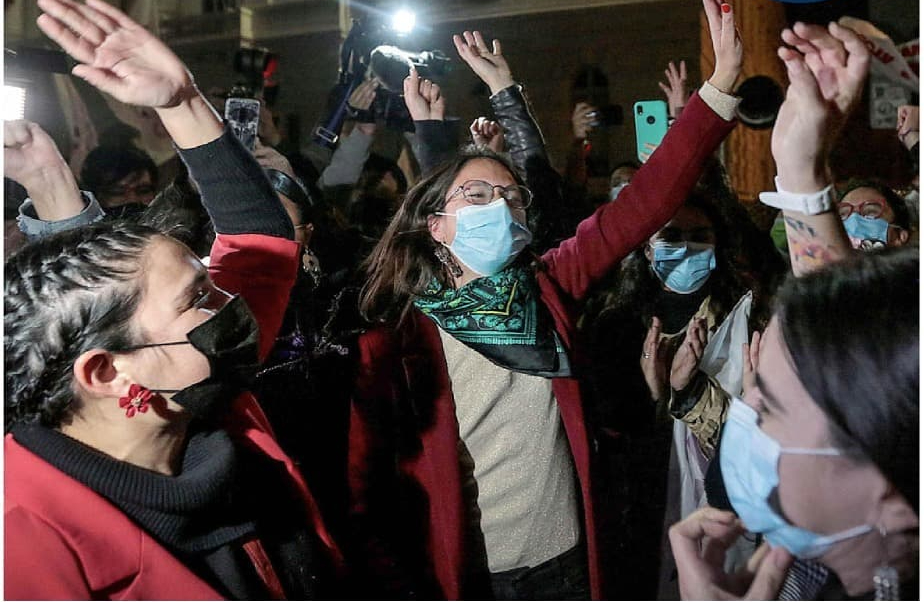Chileans took to the polls last Sunday (16 May 2021) to vote in both regional elections and to also to elect 155 members to a Constitutional Convention tasked with drafting a new constitution. The elected conventional deputies have a year to write the new constitution before the public will vote on whether to ratify it.
The demand for this constitutional convention stems from the protests beginning in October 2019 that rocked the country as millions took to the streets to vent frustration at the current constitution which was drafted under the US backed dictator Augusto Pinochet in 1980. The present constitution is blamed for entrenching neoliberal economics and the domination of right wing parties, with 78% of voters approving the decision to rewrite the constitution in a referendum held last October.
The most significant result of last Sunday’s constitutional convention election has been the defeat of the right wing bloc Vamos Chile ‘Let’s go for Chile’, who have achieved a meagre 37 convention members. This has deprived the government coalition’s candidate list of the one-third of convention members that are needed to veto constitutional provisions.
In an address from the presidential palace on Sunday night, billionaire President Sebastián Piñera recognised that Chile’s “traditional political forces” were “not in tune with people’s demands”. 48 of the 155 elected convenors are independents, with the ‘People’s List’ of left wing independents who see themselves as representatives of the October 2019 protests managing to win 27 conventional deputies.
The Apruebo Dignidad ‘Approve dignity’ list comprising the Chilean Communist Party and other anti-neoliberal parties also achieved 28 deputies whilst candidates from the centre-left coalition known as Constituent Unity won 25 seats. Although the vast array of different parties and independents may make it hard to reach consensus on constitutional provisions, the left’s success and the failure of the right to achieve the one-third needed to veto constitutional provisions bodes well for the possibility of inscribing gender equality and removing neoliberal legislation from the constitution.
The Communist Party congressional representative Karol Cariola celebrated the success of the left in these elections on social media by exclaiming that “we are breaking the padlock, which has allowed the right to veto transformations.”
The Chilean Communist Party also achieved resounding successes in the regional elections held last weekend. In Recoleta, Communist Mayor and Presidential candidate Daniel Jadue was re-elected with over 60 percent of the votes. Jadue has received acclaim for creating ‘popular pharmacies’ in which municipalities can purchase drugs and sell them at low cost to poor citizens, leading other cities to copy this model.
The most impressive Communist victory in the municipal elections was the election of 30-year-old economist Irací Hassler to Mayor of downtown Santiago. Hassler beat the incumbent Felipe Alessandri in this election despite Alessandri having the backing of President Piñera’s right wing coalition.
Hassler is the first Communist Party candidate to become a mayor in the capital city since the fall of the Pinochet dictatorship some 31 years ago. Hassler responded to her victory by saying that “We hope that what is happening today in Santiago is the prelude to what is also coming in our country, where never again will the Right govern against our neighbours… we are going to have a new Constitution and a transformation in Santiago’s neighbourhoods to conquer our dignity and a good living.“
The achievements of the left in these elections bodes well for the Presidential and Congressional elections in November, with Jadue claiming that the Communist Party is now ‘’a possibility for Chile“.
Alec Smith, is a member of the West Yorkshire Branch of the YCL.



